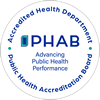
Health
Laboratory Services
Our laboratory performs water quality tests to protect your health and the health of our environment.
Drinking water testing
Get information on how to test the quality of your water. Our lab is certified to analyze drinking water for bacteria, various metals, and other water quality tests.
When to test your water
Recommendations for testing vary depending on the source of your water (private well or municipal water), age of your home, and who lives in your household.
Private well owners
You should test your water each year for bacteria and nitrate. Test sooner if there has been flooding in the area or if you notice changes in taste, odor, or appearance of the water.
It is very important to test for nitrate in households with pregnant people, infants, and young children. Nitrate can reduce the blood's ability to carry oxygen. In infants it can cause a serious condition called blue baby syndrome.
The age and type of plumbing may indicate a need for additional testing to check for lead and other metals. While lead is less of an issue in private wells, it can be found in some pumps or valves used in private wells.
Tests for Drinking Water from Private Wells
Municipal water customers
If you pay a water bill, you have water that comes from a municipal water utility. The water utility tests the water regularly and makes sure that you have safe drinking water.
You can test for water quality problems that may come from your plumbing such as lead, copper, manganese, or bacterial contamination.
You should test for lead if:
- You have lead piping or solder
- The system that brings water to where you live has lead piping or solder
- You have galvanized steel pipes
We can help figure out if you have lead pipes. Lead levels may vary widely throughout the home so do not rely on just one good test.
Water can look cloudy or discolored when water mains are flushed for cleaning and maintenance. The water should clear up after running for a few minutes. It does not usually mean testing is needed. If the water does not become clear, call your local water utility.
Other water testing
We test more than just drinking water. We can test area lakes, streams, and rivers for indicators of environmental conditions.
Testing process
Step 1 - Determine Which Tests
Different test options require different kits. We can help you figure out what tests or packages to order. Email [email protected] or call us at 608-785-9733. We will discuss the types of tests you need based on your situation and their cost.
Laboratory Testing Options and Fees
If you already know what tests you want to order, go to Step 2.
Step 2 - Get a Test Kit
All testing requires the use of a La Crosse County Health Department water testing kit. Depending on what type of testing you want, you may need more than one kit.
Water test kits must be picked up from one of the following locations: La Crosse County Health Department, your town hall, local library, or we can mail them to you.
La Crosse County Health Department
Health and Human Services Building
300 4th Street North, 2nd Floor
La Crosse, WI 54601
Hours 8:00 am – 4:30 pm Monday through Friday
(Note hours vary around holidays; before sampling call 608-785-9733)
If you are picking up a water test kit at your town hall or local library, be sure to call in advance for business hours and to make sure there are water test kit bottles at that location.
Step 3 - Collect a Water Sample
Collect the sample right before you bring it to our office. Drop off hours are Monday through Friday 8:00 am - 4:00 pm (hours may vary around holidays).
Review the instructions that come with your test kit. Instructions will vary based on the type of test. It is important to follow the instructions to get accurate results. Call us at 608-785-9733 if you have questions on how to sample.
Water Sample Collection Instructions for Coliform and Nitrate
Water Sample Collection Instructions for Metals
Step 4 - Return Sample to Us
Complete the Water Testing Form received with the test kit bottle. Water Testing Form
Bring in your payment. We accept cash, check, or credit card with a service fee.
Test kits cannot be mailed and must be dropped off at the Health Department in person.
Step 5 - Get Results
You can get your results by email or mail. Results are usually available in 10-15 business days after we receive your sample. Bacteria and nitrate samples can be sooner.
If your test result shows the water is unsafe for drinking, we will attempt to call you and give you information on what to do next. We are happy to talk to you about your results. Call us at 608-785-9733.
Cost
Laboratory Testing Options and Fees
Free drinking water testing for those who qualify
If a pregnant person or baby under 6 months lives in your home and you have financial need, water testing of your private well is available for free. This process uses a different testing kit and lab than the process above. Please call La Crosse County WIC Program at 608-205-8755 to find out if you qualify for free testing, and to request a testing kit.
If you do not qualify for free water testing, you must follow the process above and pay the fees.

Health Department Office Location
2nd Floor, 300 4th St. N.
La Crosse, WI 54601
Main Business Phone: 608-785-9872
Main Fax: 608-785-9846
Email:
[email protected]
In a public health emergency call 911
If you need assistance to access or use information on this website or Health Department services, please let us know
Interpretation services available upon request
Tell us how we are doing! Customer Satisfaction Survey
Office Hours: 8:00am to 4:30pm Monday-Friday; some service hours may vary
Collaboratively promoting a healthful community for all people.
La Crosse County Health Department complies with applicable Federal civil rights laws
and does not discriminate on the basis of race, color, national origin, age, disability, or sex.

